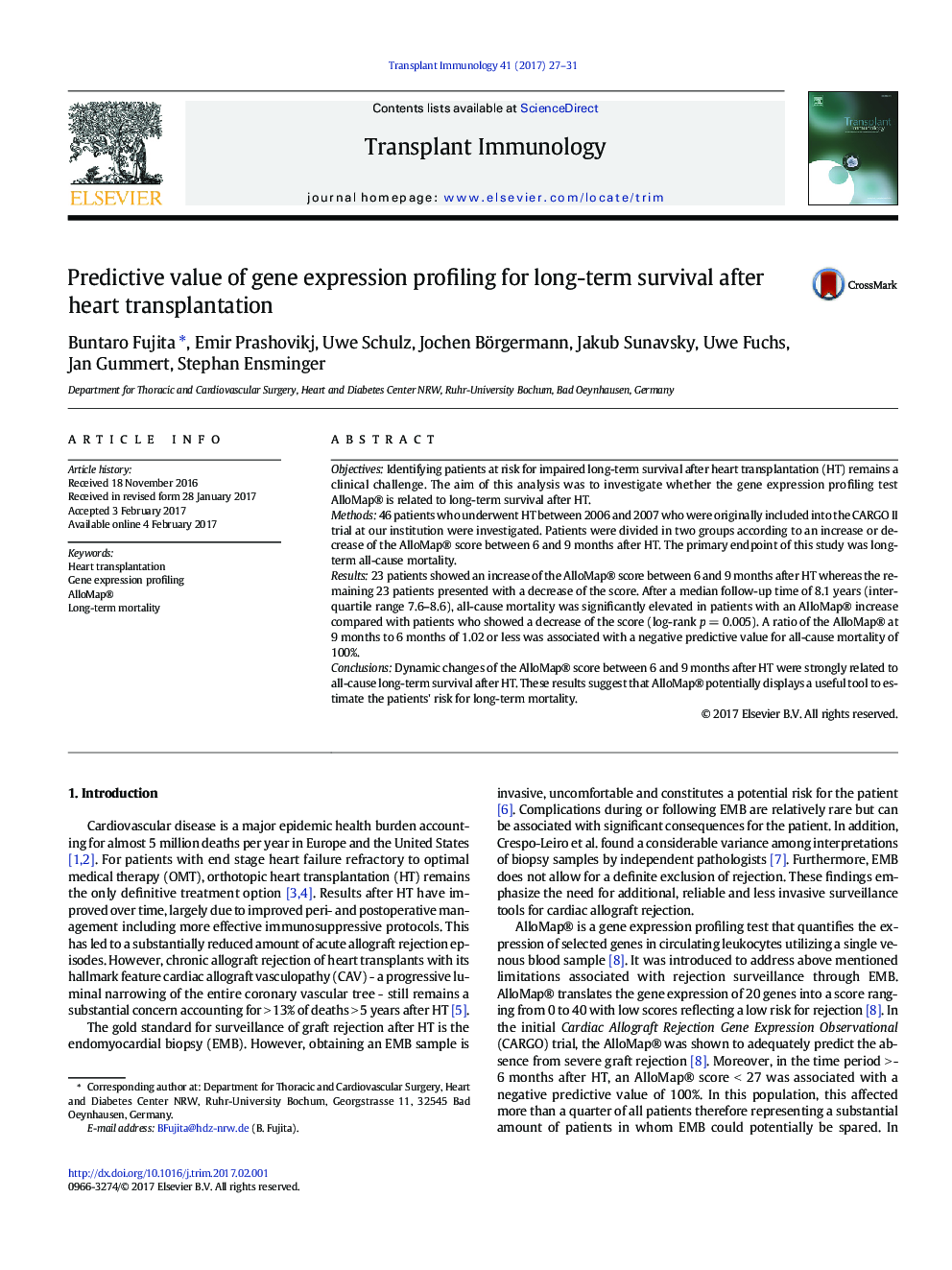| Article ID | Journal | Published Year | Pages | File Type |
|---|---|---|---|---|
| 5670459 | Transplant Immunology | 2017 | 5 Pages |
â¢Dynamic changes of gene expression profiling scores early after heart transplantation are related to long-term survivalâ¢Decrease of AlloMap® from 6 to 9 months after transplant reached a negative predictive value of 100% for long-term mortalityâ¢AlloMap® score variability has the potential to improve risk stratification of heart transplant recipients
ObjectivesIdentifying patients at risk for impaired long-term survival after heart transplantation (HT) remains a clinical challenge. The aim of this analysis was to investigate whether the gene expression profiling test AlloMap® is related to long-term survival after HT.Methods46 patients who underwent HT between 2006 and 2007 who were originally included into the CARGO II trial at our institution were investigated. Patients were divided in two groups according to an increase or decrease of the AlloMap® score between 6 and 9 months after HT. The primary endpoint of this study was long-term all-cause mortality.Results23 patients showed an increase of the AlloMap® score between 6 and 9 months after HT whereas the remaining 23 patients presented with a decrease of the score. After a median follow-up time of 8.1 years (interquartile range 7.6-8.6), all-cause mortality was significantly elevated in patients with an AlloMap® increase compared with patients who showed a decrease of the score (log-rank p = 0.005). A ratio of the AlloMap® at 9 months to 6 months of 1.02 or less was associated with a negative predictive value for all-cause mortality of 100%.ConclusionsDynamic changes of the AlloMap® score between 6 and 9 months after HT were strongly related to all-cause long-term survival after HT. These results suggest that AlloMap® potentially displays a useful tool to estimate the patients' risk for long-term mortality.
